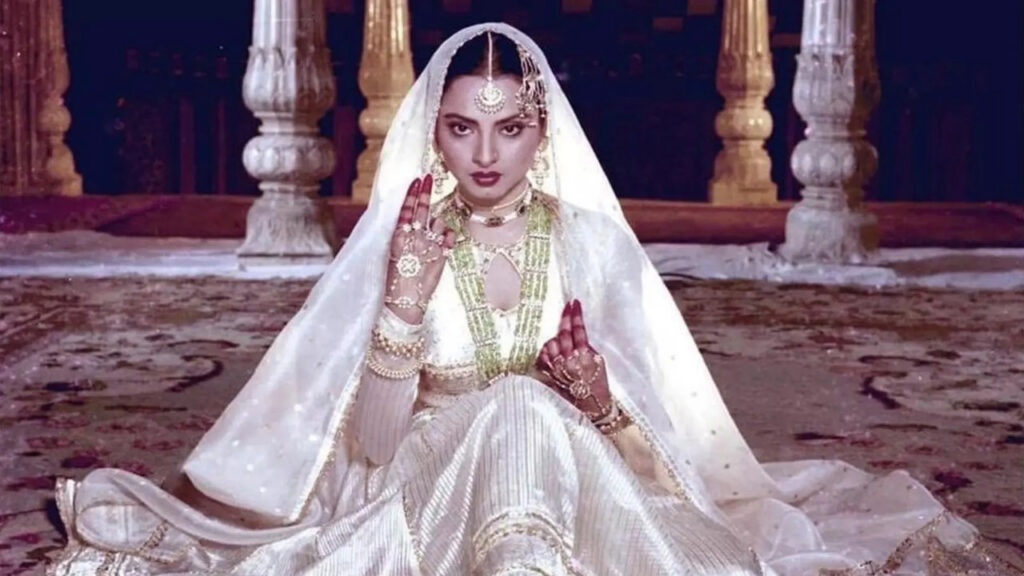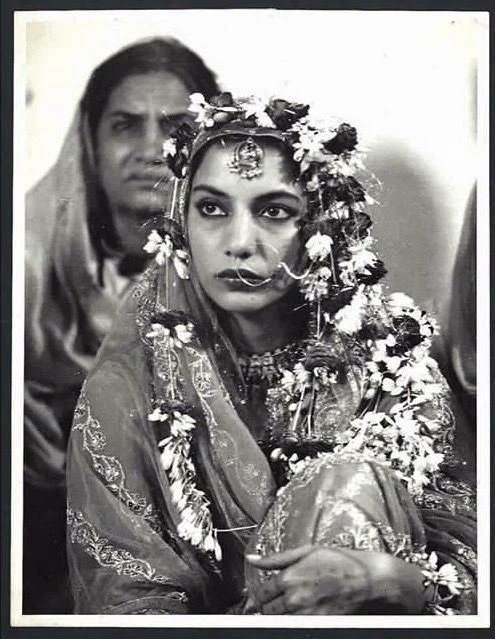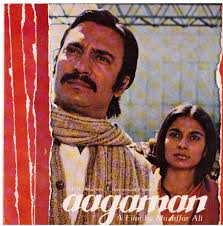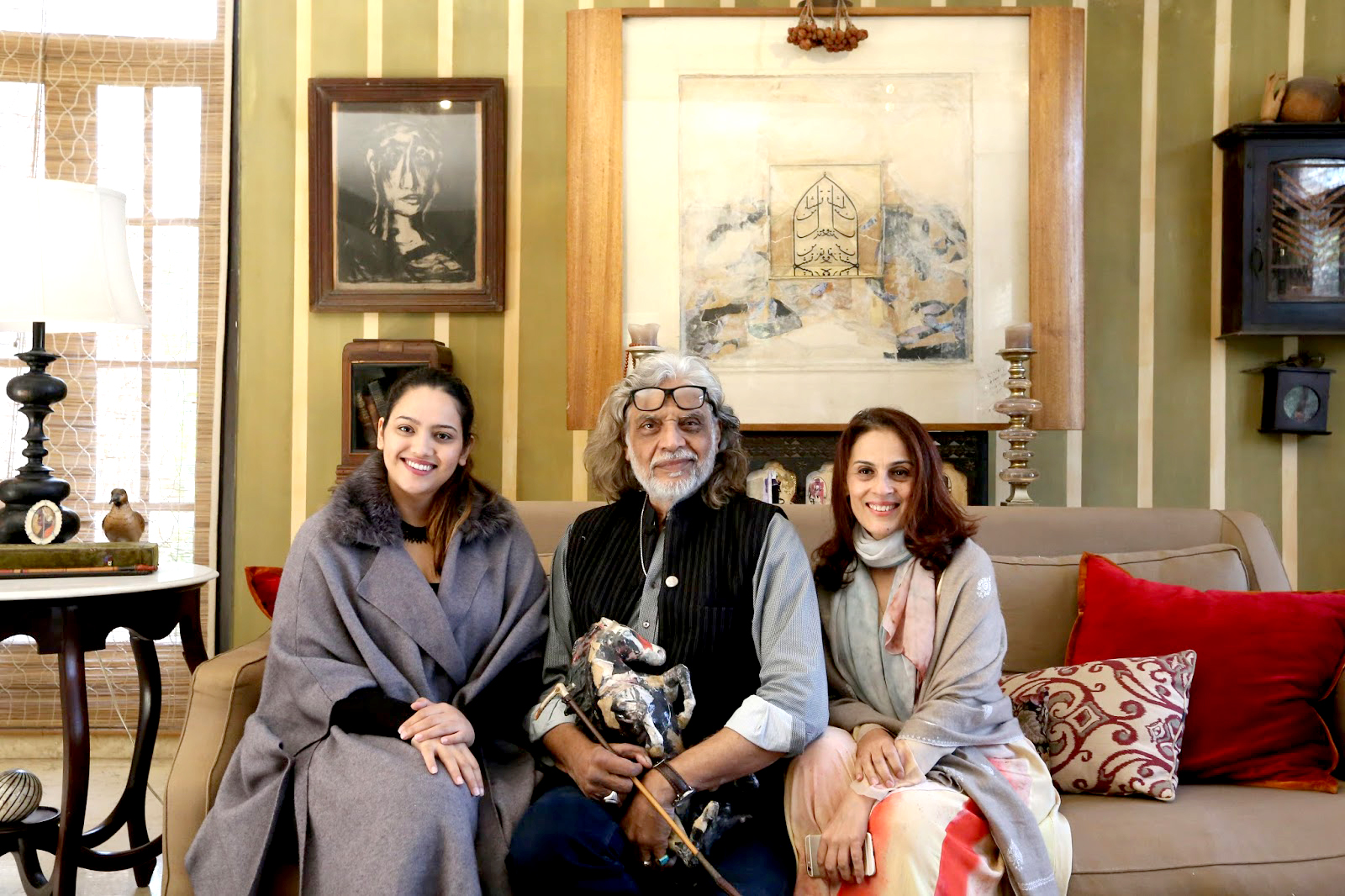
Muzaffar Ali, his wife Meera and their daughter Sama
To understand the spirit of the horse, Muzaffar Ali’s journey involved significant personal engagement with his equine companion. He explored the essence of horses through touching, caring and sketching extensively.
By Saswati Chaudhuri
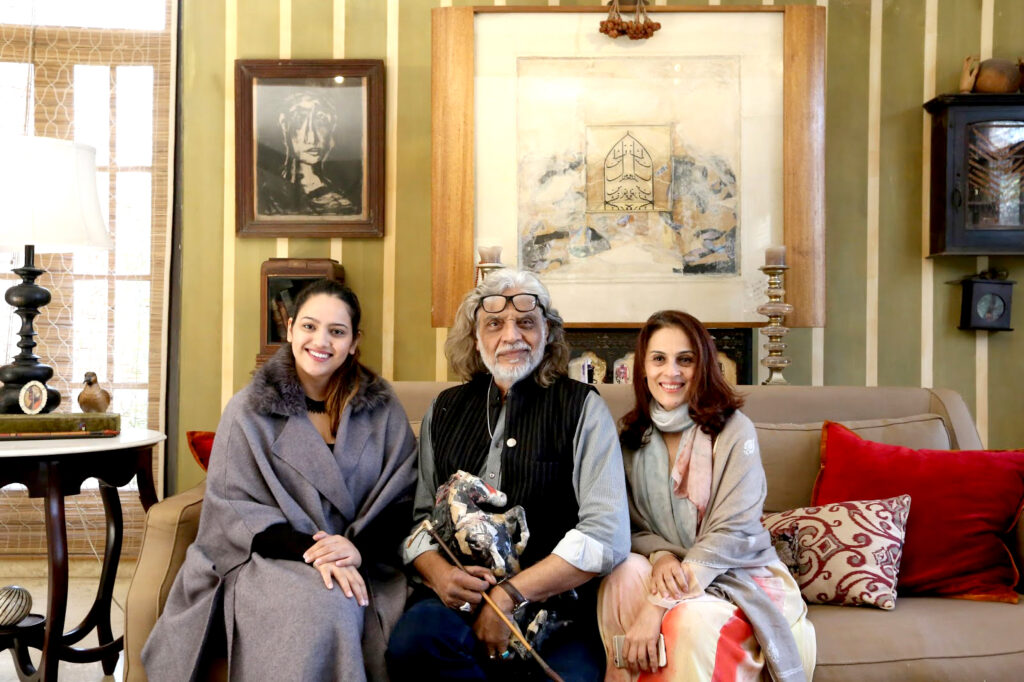
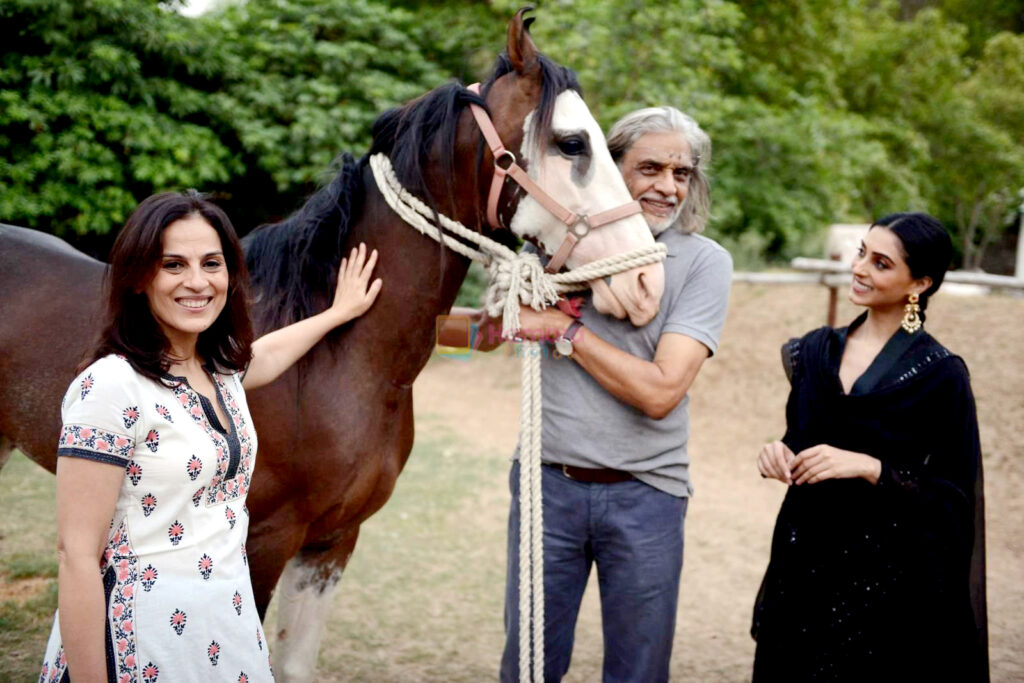
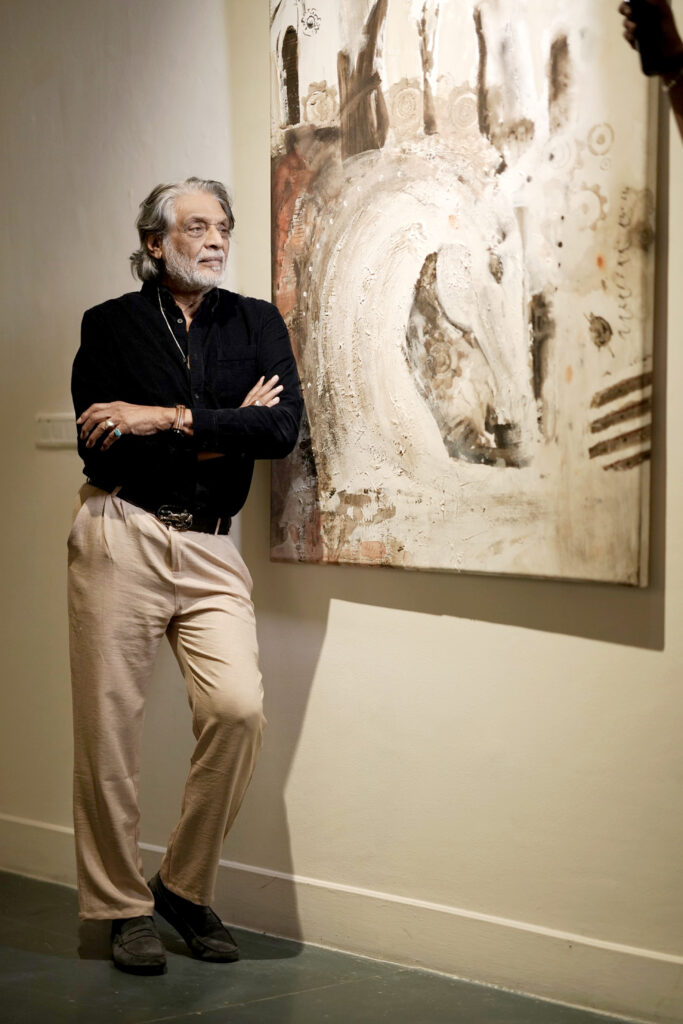


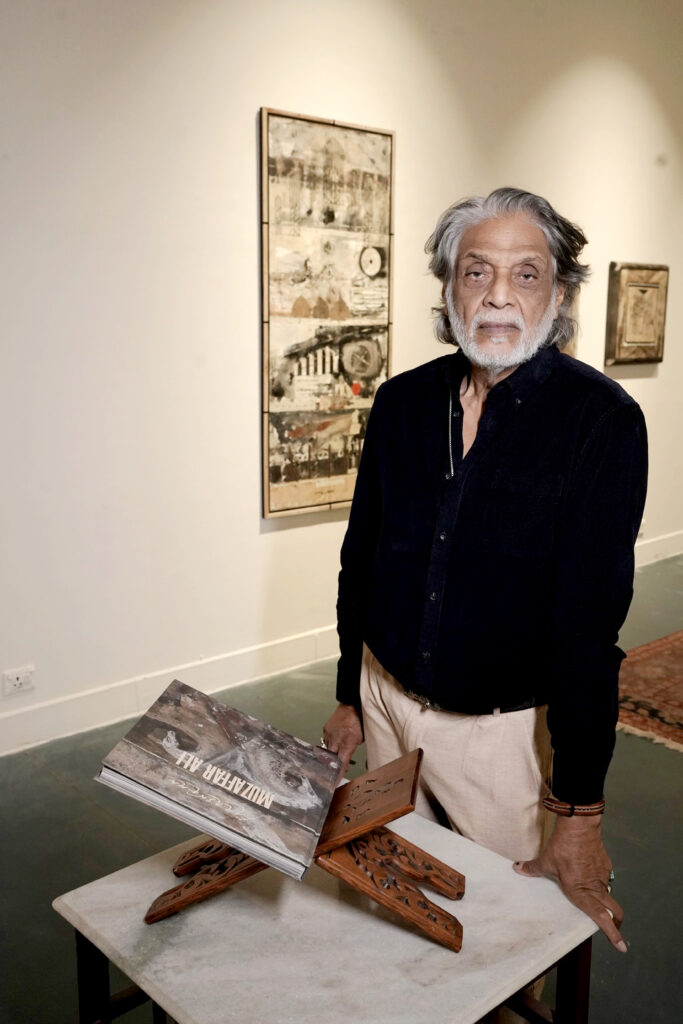

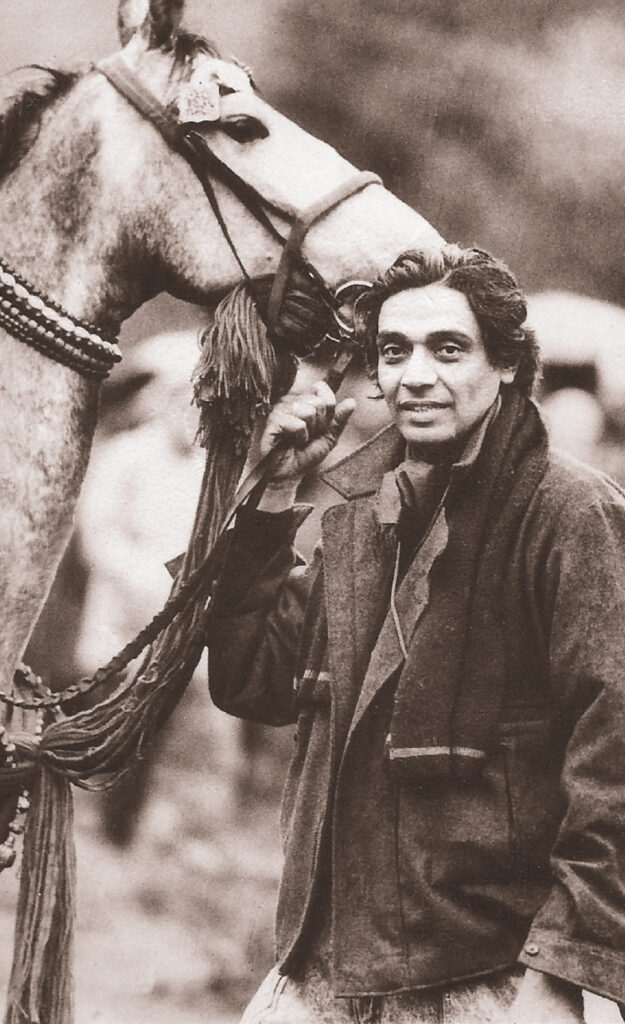
Creative soul has always been free-spirited, evolving through continuous inspiration to create and express in varied mediums. Nature and wilderness enrich artists to explore, grow and learn. All living beings coexist interconnected. There is an interdependence between all creatures. Recently, at Bikaner House in New Delhi, artist and film-maker Muzaffar Ali presented his solo exhibition “FARASNAMA: The Legend of the Horse.” showcasing his paintings, drawings, sketches, and sculptures that pay tribute to the enduring and sacred relationship between humans and majestic horses. The exhibition is curated by Uma Nair, a distinguished art historian and scholar. The term “FARASNAMA” is derived from Persian and pertains to horses and horsemanship, a subject extensively referenced in Persian literature. Horses have been part of human life since ancient times, having long complex relationships. The exhibition “FARASNAMA: The Legend of the Horse.” speaks about Muzaffar Ali’s love for horses as he says ‘I have a horse, I love to spend time with…caring, touching, feeding”. As an artist myself I certainly feel the celebration of horses in art is a distinctive and noteworthy endeavor realized by Muzaffar Ali which originated from his deep love for the horses. Everyone of us admire a horse’s beauty, its movement and force but only a sensitive observer can perceive the art within, for capturing the grace, divinity and mystique in them.
The exhibition is organized into four themed sections. It begins with sketches of horses and a series featuring Rumi, the artist’s favorite muse. The show predominantly includes compositions of horses, characterized by rich textures and bold lines in sketches, paintings, and sculptures. The subsequent sections include portraits of Zooni, a character based on an unfinished film that the artist developed as preparatory work, along with a collection of calligraphy studies.
Muzaffar Ali was born in Lucknow in October 1944 and began his artistic journey in childhood while still in school, where he developed a deep passion for sketching, with pencil and paper as his steadfast companions. Encouraged by teachers and driven by his enthusiasm, he nurtured his talent. Though primarily recognized as a filmmaker, especially for the classic ‘Umrao Jaan’, he embodies many identities like poet, activist, artist, and musician. He beautifully conveys his ideas through diverse creative expressions, whether in cinematic or artistic forms.
Artists are part of society, environment and nature. Before civilizations humans lived in the wild jungle and painted on cave walls where they expressed their creativity. So since the beginning, art serves as a reflection of the inspirations and memories of humans that drive his creativity and imagination. Muzaffar Ali’s journey to understand the spirit of the horse has involved significant personal engagement, including touching, caring for, and nurturing his equine companion. Through extensive drawing and sketching, he endeavors to explore and capture the essence of horses in various artistic mediums. Upon interacting with one of his paintings, he remarks with a smile, “I appreciate the rock-like texture intertwined with the forms of the horse. My academic background in science and geology has profoundly influenced my artistic inspiration.” He presents his horse through a variety of artistic mediums, revealing it from different perspectives. In several paintings, he utilizes mixed-media techniques to illuminate the horse’s shape. This narrative is to celebrate enduring beauty, profound mystery, and timeless parables that inspire and resonate. He celebrates his passion for creating artworks that span over four decades, featuring everything from sketches to a new collection of canvases and bronzes, all focused on his favourite subject, the horse. As an artist he strives to infuse artistry into the cinematic frames and bring the essence of cinema to the canvas.
He studied science, graduating from Aligarh Muslim University with subjects Geology, Botany, and Chemistry. Having no formal training in art or film, he began his career at an advertising agency in Calcutta where he met many legendary personalities like the film-makers Mrinal Sen and Satyajit Ray, with whom he worked. He also came to know about the English theatre world of Calcutta and those experiences created a great impact in his work life. As an artist, he believes creativity has a strong connection with nature that includes all living creatures. His art and films inspire one another, forming an essential part of his creative journey. For him, filmmaking and painting are intertwined expressions of his thoughts and ideas. He affirms, “If I am not a painter, I can’t make films. I sketch every frame when I create a film. The frame is important, as are its movements, the way it contains the character, and how the light interacts with it. To achieve a good composition, geometry is crucial, and I find it in nature and botany. Without understanding movement and light, one cannot be a true artist or filmmaker.” His creative mind expanded towards poetry during his graduation, which provided him with a poetic understanding of art. He first exhibited his works in 1964, followed by a larger exhibition in Calcutta in 1968 at the Academy of Fine Arts. From Calcutta he moved to Mumbai to work for Air India and later he left job to fully devote his time making films and creating art.
Muzaffar Ali is recognized for his extensive knowledge and research in the creative arts, demonstrating a profound understanding of both Indian and European art and cultural history. which is reflected in his paintings, sketches, and collages. ‘Farasnama: The Legend of the Horse’ took him into new territory. We discovered beautiful bronze sculptures of horses illuminated with dramatic lighting, creating a significant visual impact for the viewers. He showcased his bronzes for the first time. A huge drawing of a horse on the wall space of one hall attracted the art lovers and horse lovers both, it was captivating that captured the wildness, speed and dynamic movement of the horse. His passion for horses spans across diverse mediums. He feels horses relate to everything including the rhythm of poetry, striking brush strokes on canvas, spirited music and dance. The exhibition also showcases a few installations composed with found materials, wooden furniture, leather belts and other nostalgic elements like old postcards, photographs making an aesthetic impression.
He says in his own right, “I am free like a horse”
